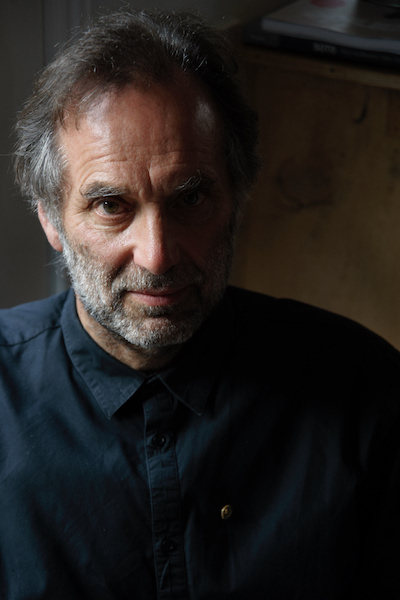In this series, WeWork’s director of digital community selects a WeWork member to get to know better, sharing her fun findings with the rest of the community.
“If you Google ‘the best memory coach in the world,’ I come up number one,” says Bill Aronson. This is true, and it’s no wonder why: The London-based memory coach has taught over 25,000 people across the globe how to double their memory, including the skill of memorizing which day of the week corresponds to a certain date—without ever having to look at a calendar. Read on to learn about “mental Lycra” and giving your mind a workout, why multitasking is not your friend, and more.
Tell us a little bit about yourself.
I’m a memory coach. I help people double their memory, so they can be more productive, have more self-confidence, and have a better idea of their future. The way I do that is I have online courses with live coaching, and I also meet with people in WeWork in London.
What sort of feedback do you get from clients of yours?
One of my clients said they just got a major promotion inside the company they work with—a major company—and they attributed it absolutely to the memory training that they got working with me.
And for a personal example, I decided I wanted to become a scrum master (scrum being a qualification in project management). Normally to get that qualification would take a few weeks—you’d have to go off, take a course that might cost about $2,000, and take a few days of time. But because I’m trained in these memory techniques, I did my research on Friday, started on Saturday morning, was busy on Sunday, took the exam on Monday morning, and passed with 96 percent!

Another example is I’m part of The Cambridge International School where we’re teaching teenagers these techniques. These are 16-to-18-year-olds, and it’s the first school in the world where teenagers can go to school, do their exams, but also set up and run their own businesses. A few weeks ago, they decided they wanted to teach themselves Portuguese—none of them knowing anything about it at all—and they are planning to be fluent six weeks from the start.
What’s your favorite thing about your business?
My favorite thing is working with older people because as you get older, your body may not be as strong, or your mind may not be as quick, so you may think your memory is fading as part of getting older. When they discover that this is not the case—their memory is getting better and better, their brain can be more creative and more agile than when they were younger—that’s just thrilling for them and for me to see that happen.
What are some ways you can improve your memory?
1. Stop multitasking. 2. Decide why. 3. Practice daily.
We are not wired to multitask. It prevents us from being present and paying attention. Good luck trying to remember a person’s name while checking your text messages.
At this time of the year, we are all inspired to make a fresh start. Without a strong reason, our good intentions will fade by February 1. Ask yourself what your life would be like if your memory capacity was half as good as it is today. Not a pleasant thought, is it?

Now consider what your life would be like if it was twice as good in six weeks’ time. This is entirely possible.
The main reason why your memory is not as good as it could be is you have no technique. You never learned how to learn, only what to learn. That is why I have created a number of free courses. In one hour, you can memorize every password you have. In two hours, you can memorize the day of the week for every date from 2016 to 2019. In six weeks, you can double your memory. So unless you have a spare brain, get cracking on making the one you have shine and sparkle.
How can people work with you?
The best way for people to work with me is to go to masteryourmemory.teachable.com. The six-week course is completely free, and at the end of that course, your memory will double. In addition to the online training, there’s weekly live coaching. It’s 30 minutes—like going to the mental gym! I tell people to put their mental Lycra on.
Anything else we should know about you?
I believe memory is a foundational skill, and it’s going to become more and more important as the world changes more quickly. My view is the currency of the future is your capacity to learn. And it never stops—you can always build on it and get better and better. Learning does a wonder for your self-confidence.




